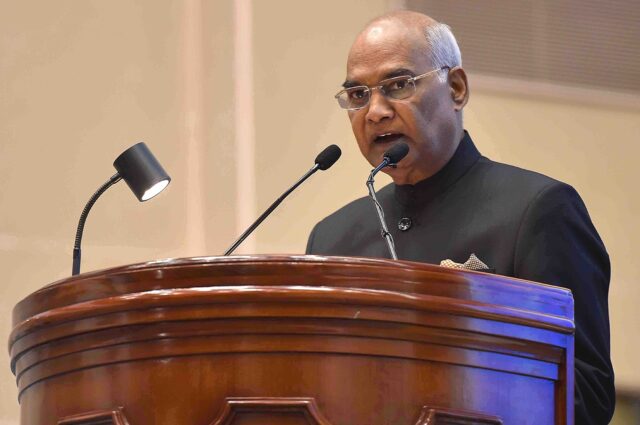
Geopolitical Report ISSN 2785-2598 Volume 29 Issue 8
Author: Guido Keller
India and Turkmenistan discussed expanding cultural cooperation confirming New Delhi’s strategy in Central Asia and Ashgabat’s desire to diversify and enhance its collaboration and ties with regional actors.
Information background
Deputy Minister of Foreign Affairs of Turkmenistan Myahri Byashimova met in Ashgabat with Indian Ambassador Vidhu P. Nair to discuss the possibilities for further development of cooperation in the fields of science, education and healthcare. The diplomats also drew attention to the need to build up contacts in trade, economy, transport, logistics, information technology, the textile industry, the petrochemical industry, architecture and construction. Politicians also focused on constructive interaction on the world stage and mutual support for proposals and initiatives within international structures.
In April 2022, Indian President Ram Nath Kovind visited Turkmenistan and discussed with Turkmen President Serdar Berdimuhamedov the state and prospects of bilateral relations. They also exchanged views on various regional and international issues of importance. During this visit, four agreements were signed between India and Turkmenistan regarding disaster management, financial intelligence, culture, and youth matters.
On January 27th, 2022, Indian Prime Minister Shri Narendra Modi hosted in an online formula the first India-Central Asia Summit attended by the heads of state of Central Asia. The summit emphasised the need to establish cooperation between specialised national institutions in renewable energy, information, digital, and advanced technologies.
The geopolitical scenario of India-Turkmenistan relations
Since Turkmenistan’s economy relies on energy export and agriculture in irrigated areas, Ashgabat needs to expand its network of trade partners. Since the country hugely depends on natural gas export and demand from China, diversification and increasing exportation are the main goals that Ashgabat seeks to achieve. Although Turkmenistan’s GDP is expected to grow by 5.8% in 2023, with inflation forecasted at 10.5% in 2023, the country’s economy still needs to be diversified and decrease the presence of state-owned companies and state companies involved in leading economic sectors.
India’s interests in Turkmenistan are primarily political and economic. New Delhi wants to maintain warm and positive relations with Ashgabat to counter the Chinese presence in the country and also in the region of the significant logistic and strategic role that Central Asia plays in the Eurasian geopolitical chessboard.
India’s interests in Turkmenistan include energy security, infrastructure development, trade and investment. Thanks to the TAPI pipeline and other projects, Turkmenistan might become India’s key natural gas supplier and help New Delhi decrease its dependence on Middle Eastern natural gas imports, vulnerable to supply disruption due to regional geopolitical tension. Indeed, the TAPI pipeline project (Turkmenistan, Afghanistan, Pakistan, India) aims to build a gas pipeline that should export Turkmen’s natural gas to the Indian sub-continent and support Turkmenistan’s economic growth.
Culture is another area of cooperation between India and Turkmenistan. Indian cinema, TV serials, and music are popular among Turkmen. Archaeological finds in south Turkmenistan have revealed contacts with Indus Valley Civilisation. India established the Hindi Chair in the Azadi Institute of World languages, Ashgabat, where Hindi is being taught to university students.
At the regional level, Ashgabat and New Delhi share interests in tackling radicalisation and terrorism, curbing illicit trade, and controlling the situation in Afghanistan, especially after the US troops’ withdrawal from Kabul in August 2021.
Why does it matter?
Since the fall of the Soviet Union, Central Asia has been the ‘battleground’ of international powers’ competition (United States, Russia, China). After the beginning of the Ukraine conflict and the Western sanctions against Moscow, Central Asia has increased its strategic role in Eurasia as a logistic hub and energy market. The Ukraine conflict marked the beginning of a ‘new era’ for the Central Asian republics, which sought to achieve regional cooperation, integration, and balance between superpowers and regional actors’ competition.
India is among the regional powers that aim to strengthen its influence in Central Asia and reach economic agreements, especially in the natural gas and oil sectors. India’s strategy in Central Asia is focused on energy security, infrastructure development, the fight against Islamic fundamentalism, and trade and investment.
Central Asia allows India to leverage its political, economic, and strategic interests beyond its borders. Therefore, India can promote the establishment of air corridors with Central Asian states to facilitate the movement of people and goods between them. In this context, India’s interests in Turkmenistan are primarily driven by its need for energy security (thanks to the TAPI) and its desire to strengthen bilateral relations with the country.
The meeting between Deputy Minister of Foreign Affairs of Turkmenistan Myahri Byashimova and the Indian Ambassador Vidhu P. Nair confirmed that New Delhi has been engaging in cultural diplomacy with Ashgabat as part of its broader strategy to strengthen bilateral relations.
India’s increased political influence and economic presence in Turkmenistan and other Central Asian republics confirms that New Delhi might become an active actor in the regional New Greate Game, which currently sees the United States, Russia and China oppose each other with different strategies and foreign policies.



